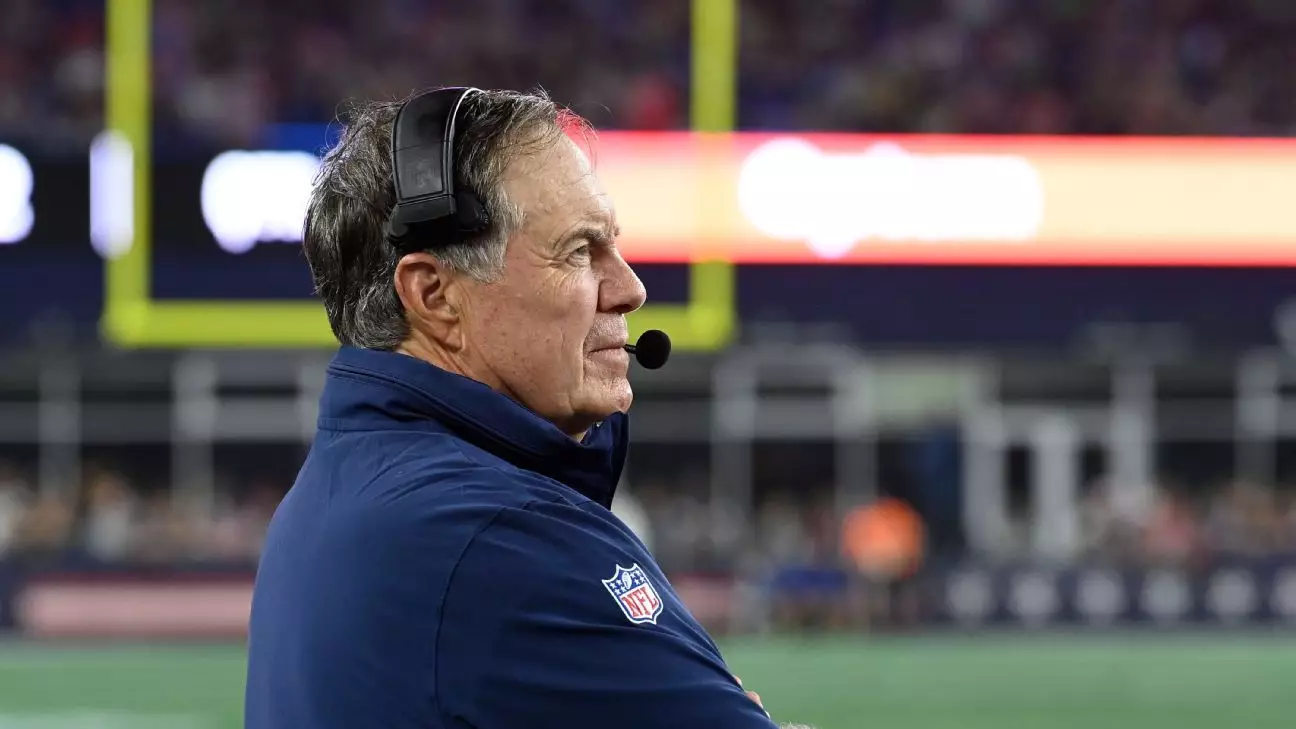Bill Belichick, an emblematic figure in the National Football League (NFL) with an impressive six Super Bowl wins, is reportedly considering a significant leap into the realm of college football as the potential head coach of the University of North Carolina (UNC) Tar Heels. As a coach whose methods have largely influenced professional football, the notion of him moving to the collegiate level raises eyebrows and invites speculation about both his fit within that environment and what such a transition would mean for the landscape of college football coaching.
Belichick, 72, recently parted ways with the New England Patriots after a storied 24-year tenure, marking the end of an era characterized by sustained success and tactical innovation. His expressed desire to return to coaching—this time in an unfamiliar arena—points to a fundamental craving for the game that has defined his existence. In contrast, North Carolina’s search for a new head coach has become a pressing narrative since the departure of Mack Brown, a 73-year-old College Football Hall of Famer whose term concluded after a six-season run with a mixed record of 44-33. The Tar Heels finished their latest season with a mediocre 6-6 record, leading to a tumultuous coaching transition and an urgency to revive the program.
Belichick’s pedigree screams elite football intelligence; however, one must question if his NFL-oriented approach will mesh with the dynamics of college football. College environments often require a unique set of skills, including recruiting, player development, and navigating the intricate off-field issues that can arise within a youthful, diverse roster.
The Competitive Landscape of Coaching Candidates
The intrigue surrounding Belichick’s interest isn’t limited to his legendary status. In a rapidly evolving coaching market, the removal of Brown has set the stage for a competitive search, attracting various candidates with different strengths and philosophies. Names like Tulane’s Jon Sumrall, Iowa State’s Matt Campbell, and Georgia’s Glenn Schumann showcase varying coaching styles and experiences, creating a nuanced decision-making process for UNC administration. While some traditionalists may advocate for seasoned college coaches, Belichick’s arrival could offer a transformative strategy, emphasizing tactical prowess and experience honed at the highest level.
Among other candidates, Steve Wilks brings an interesting profile with a blend of NFL experience. Nonetheless, UNC initially pursued Pittsburgh Steelers’ Arthur Smith, indicating a possible direction toward professionals with NFL roots. This pivot in focus to figure such as Belichick could signal a willingness to embrace an unconventional and potentially disruptive approach to revamp the Tar Heels’ program.
Media Presence and Public Image
As he contemplates a return, Belichick has not stepped entirely out of the public eye. His media presence, particularly appearances on prominent platforms like “ManningCast” during “Monday Night Football,” and his role on “The Pat McAfee Show,” have kept his football insights relevant and accessible. This newfound public visibility raises intriguing questions about his ability to connect with college players and a younger gaming audience, many of whom might know him more as a media personality than a traditional coach.
Maintaining a dual role in media while simultaneously stepping into the high-stakes environment of college football could present an identity crisis of sorts. The demands of recruiting and mentoring young players are vastly different from that of publicly discussing the game, and it will be interesting to observe how Belichick balances these distinctions should he assume the role at UNC.
Despite never having coached in the college ranks, Belichick’s football legacy is rooted—not just in championships—but in a profound understanding of the sport. If he takes on the Tar Heels’ head-coaching gig, he will be expected not only to replicate his NFL success but also to cultivate an entirely new culture within a collegiate setting.
Should he succeed, it could alter perceptions of what a college coaching career entails, opening doors for other NFL veterans seeking transitions into college football. Conversely, any oversights could lead to a reassessment of the suitability of NFL methods in academic environments.
Ultimately, the intersection of Belichick’s illustrious legacy and the path of UNC football represents a fascinating chapter in sports narratives. While there are significant hurdles to cross, the prospect of such a powerful figure stepping into college coaching beckons a new age of possibilities, promising to shake the very foundation of how the game is approached at this level.

